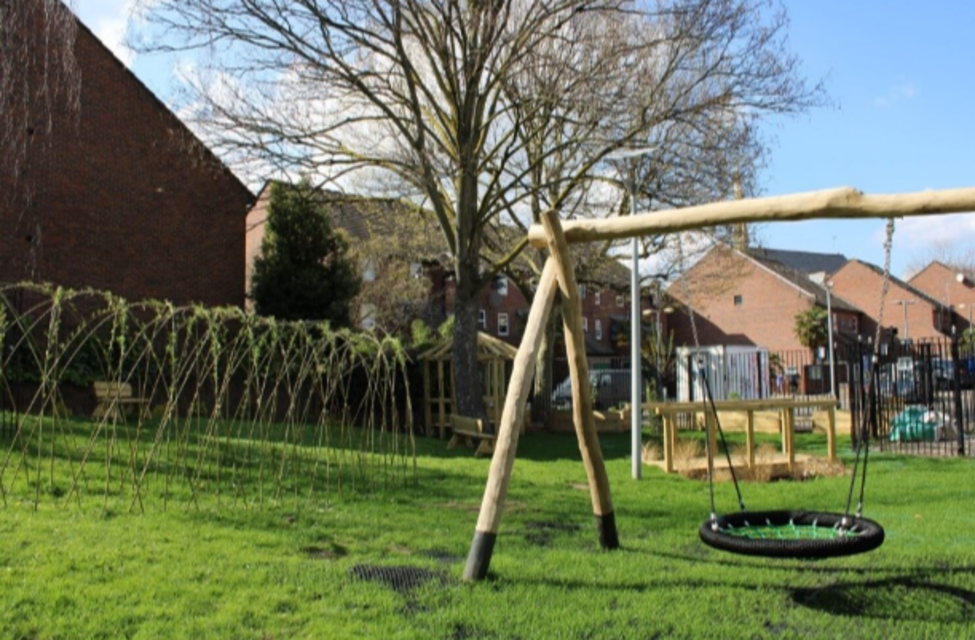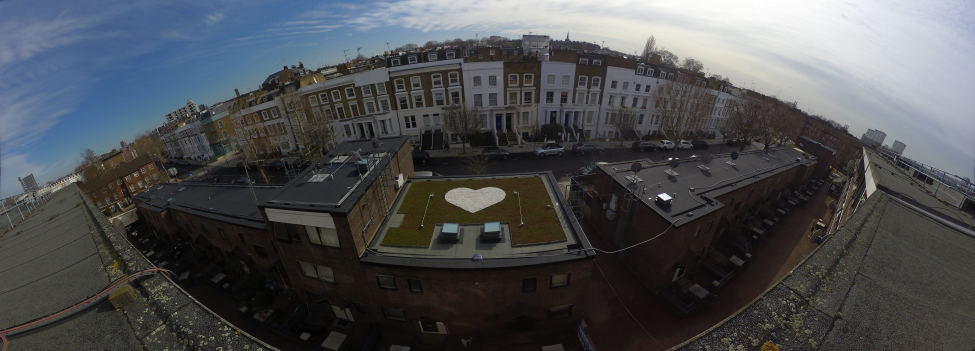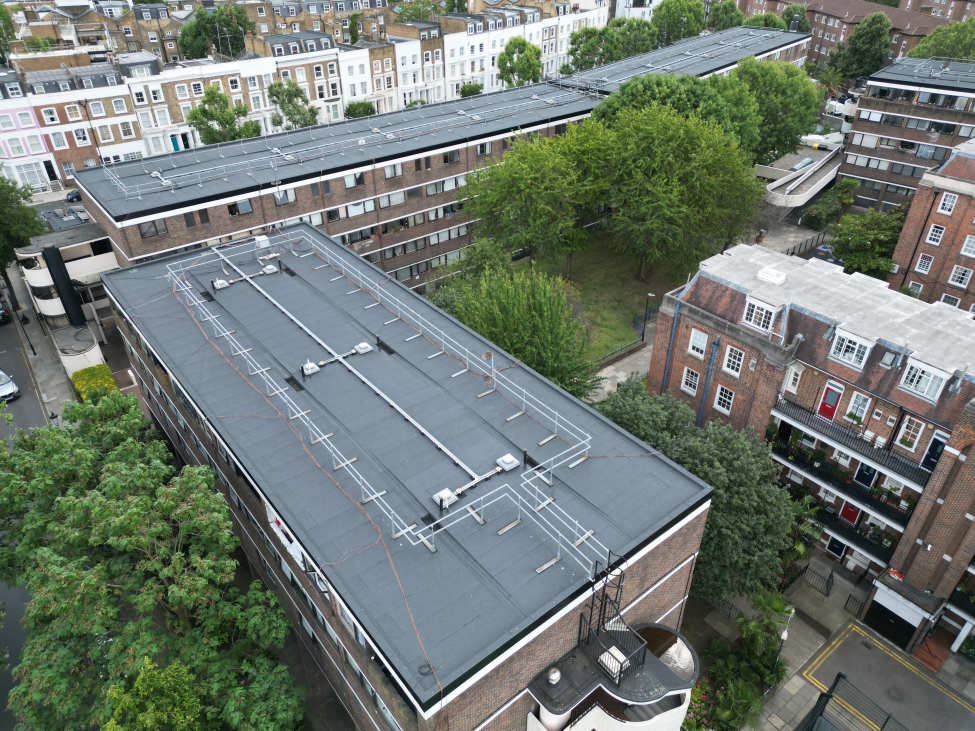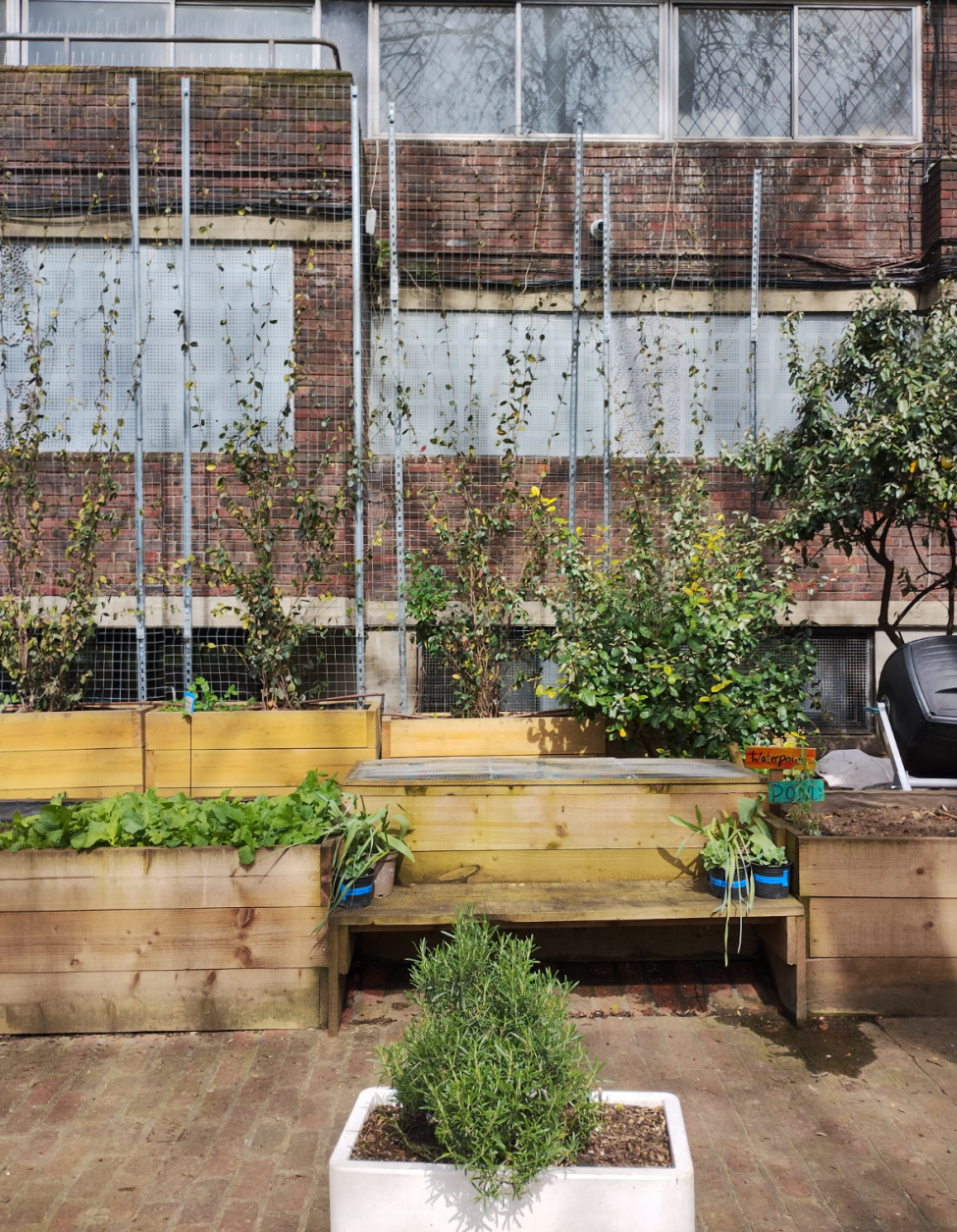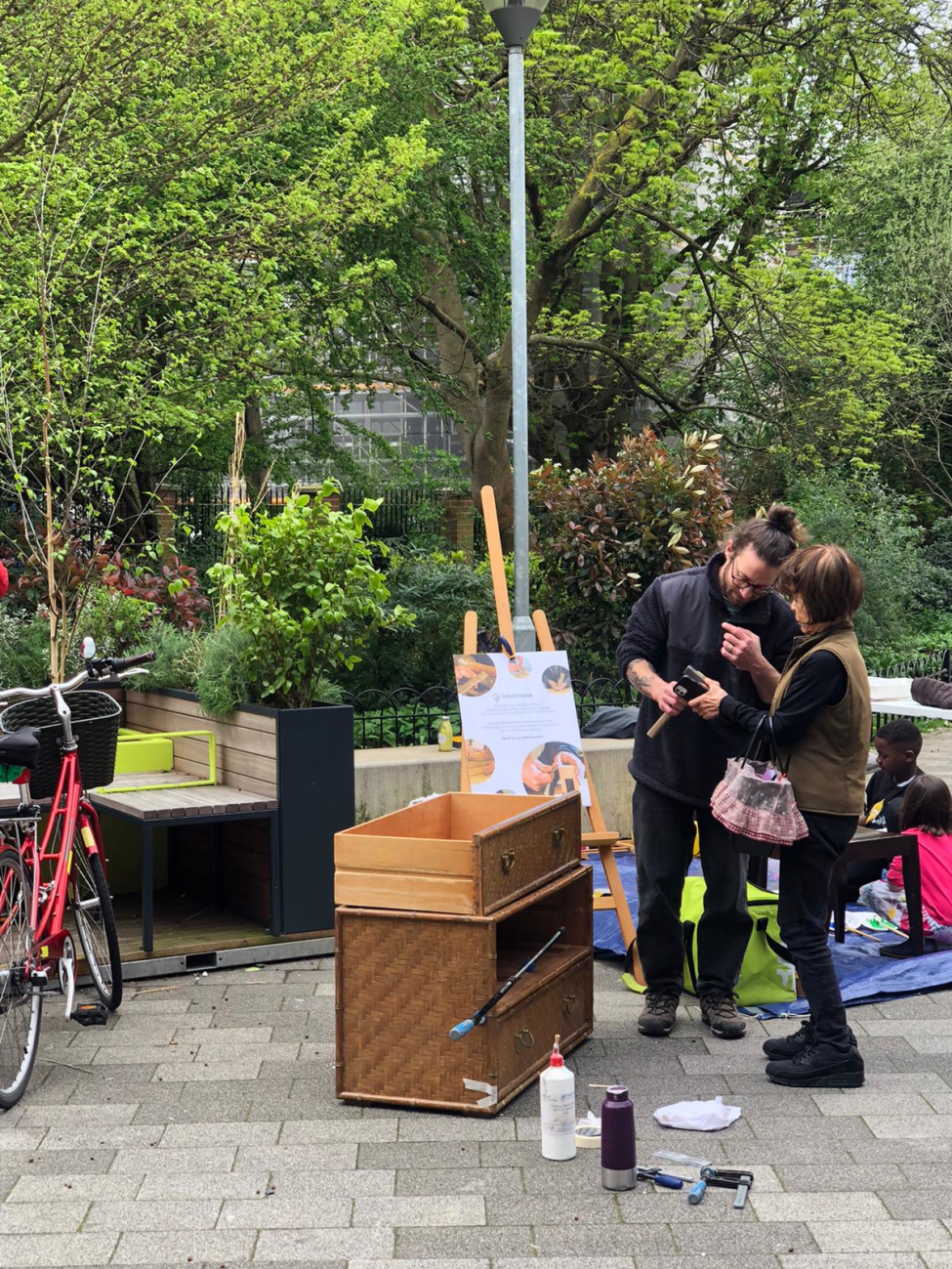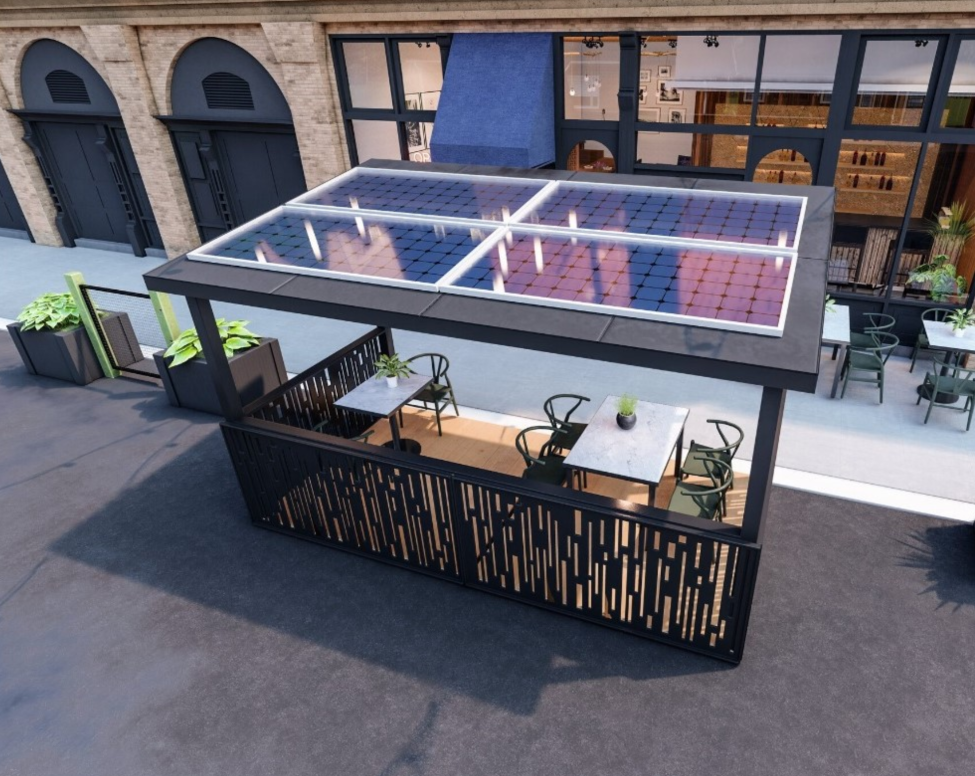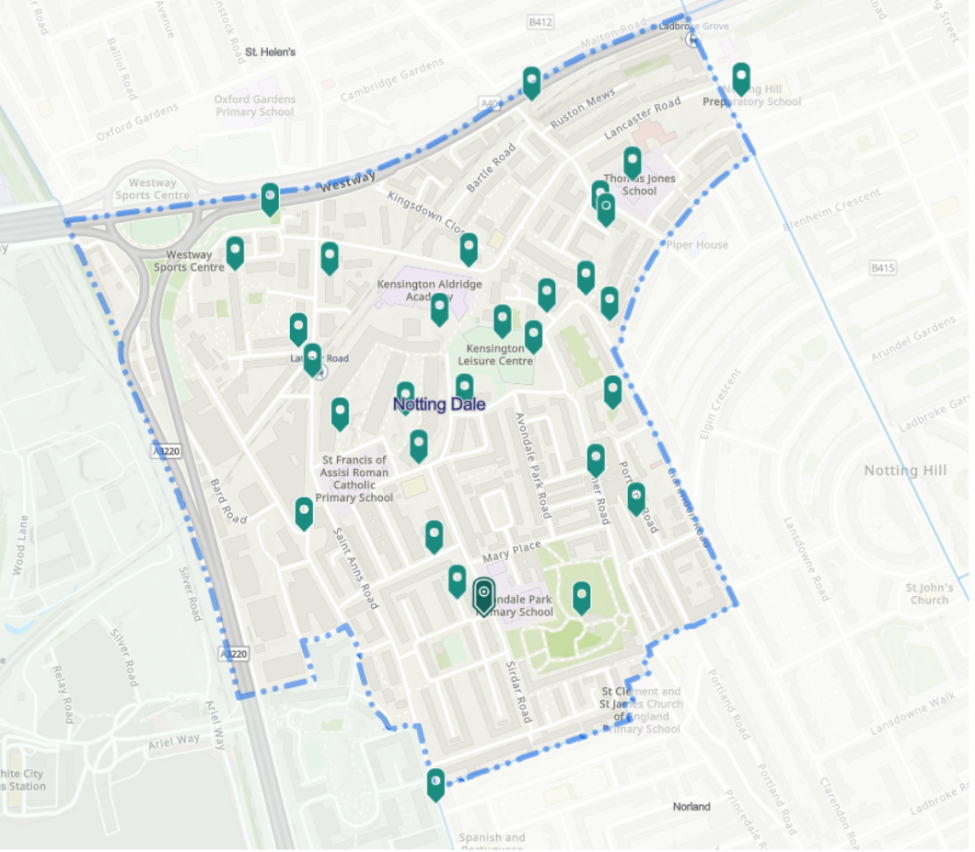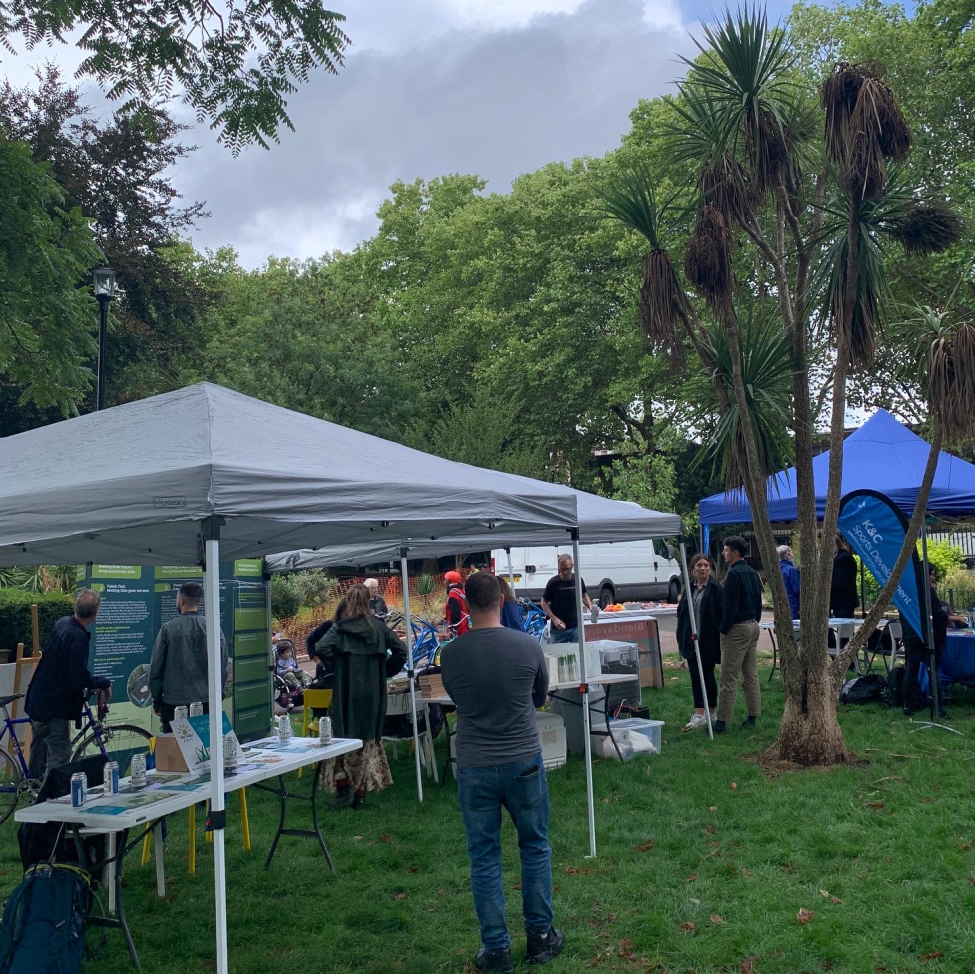
The central aim is to transform Notting Dale into an exemplar model of eco-neighbourhood that is greener, fairer and more climate resilient for all, by 2030.
Over 50 projects are now in progress or already complete through the programme. These are bringing benefits to the community in Notting Dale through:
- Improved air quality
- More energy efficient homes
- Lower carbon emissions
- Improved access to nature
- Addressing barriers to active travel
- Creating more green spaces
- New green jobs and training opportunities for residents
- Tackling social and health inequalities
- Tackling the cost of living crisis


